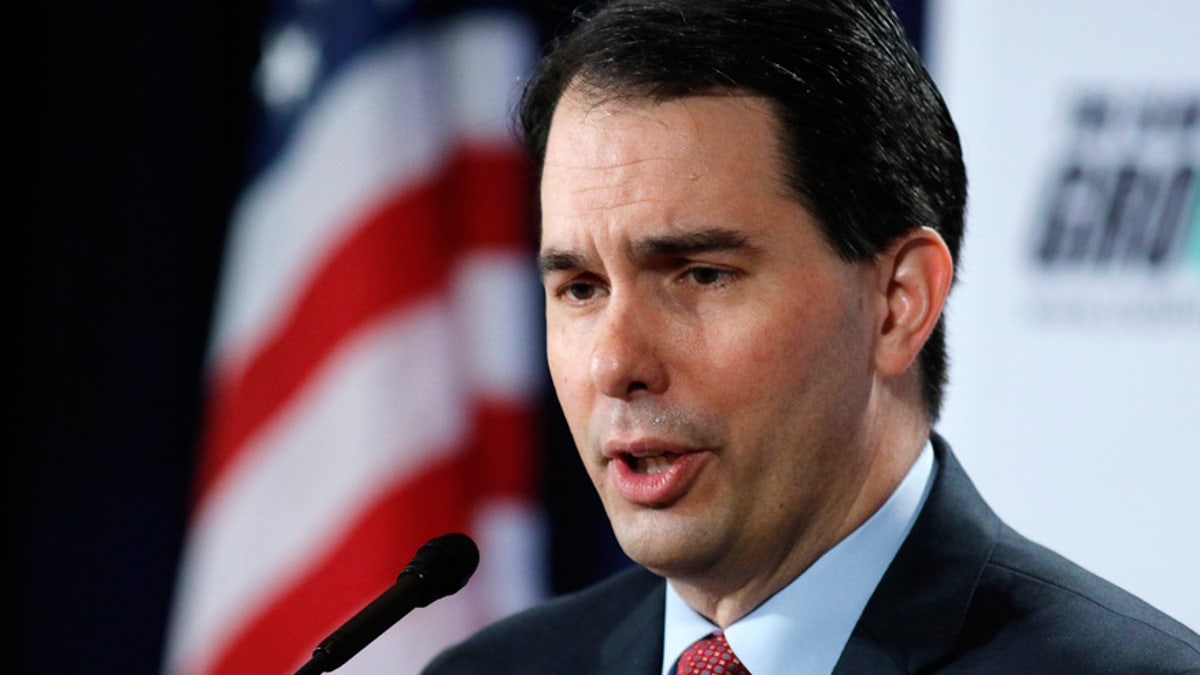
In this Feb. 28, 2015 file photo, Wisconsin Gov. Scott Walker speaks in Palm Beach, Fla.
President Obama treaded into the nascent 2016 presidential campaign to pick his replacement with some choice words for Wisconsin Gov. Scott Walker. Walker has already declared if he wins the White House he would have no use for the deal the administration wants to make over Iran’s nuclear program. Obama’s advice was that it “would be a foolish approach to take and perhaps Mr. Walker — after he's taken some time to bone up on foreign policy — will feel the same way.”
For his part Walker seemed happy to garner attention from the White House. It offered him to the spotlight to fire back. “Americans would be better served by a President who spent more time working with governors & Congress,” he tweeted, “rather than attacking them.”
The debate over the proposed deal with Iran has only drawn more attention from candidates on the issue. Walker isn’t the only one ramping up. Former Texas Gov. Rick Perry also declared that, if elected, he would trash Obama’s deal.
Dueling declarations highlighted an emerging reality of the still-young 2016 race to the White House. There are already predictions that foreign and defense issues will play a larger role in the campaigns than many had previously thought.
Obama is probably right. Candidates will have to up their game on foreign policy. They must make the case they are the right sober, prudent, selfless and responsible leader for handling the nation’s foreign affairs.
First, they’ll learn what a tough corner the president has occupied when it comes to striking a deal with Iran. There is no deal yet. There is only the framework of a deal. The more the president tries to press for pre-approval by sniping at critics such as Walker and Perry and crowing for the deal like an obnoxious used car salesman, the more attention he brings to the framework.
The more scrutiny and debate the framework attracts, the less attractive the proto-deal is going to look. That will leave the administration an even weaker hand on delivering a signed document that will convince Americans he has forestalled Tehran’s nuclear ambitions.
Second, when candidates do study the state of foreign policy, they will learn a lot of lessons in what not do. A real foreign policy leadership team would be marked by the character, competence and critical thinking of the people making policy. From the failures of the Russian Reset, to Benghazi, to resurgent transnational terrorism and ill-thought out rapprochements with Iran and Cuba, this administration has demonstrated short-comings in all three.




















